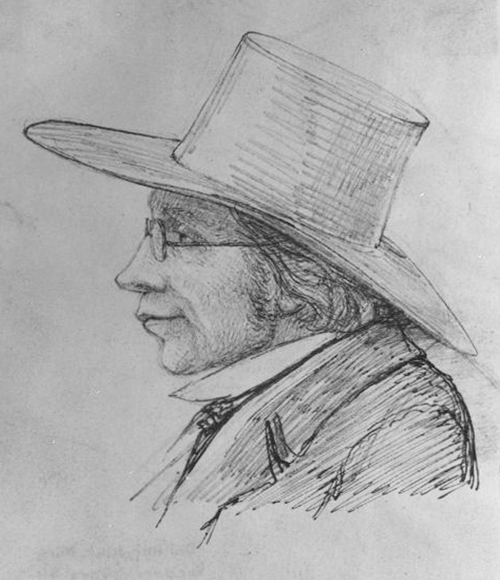
Your complimentary articles
You’ve read one of your four complimentary articles for this month.
You can read four articles free per month. To have complete access to the thousands of philosophy articles on this site, please
Philosophical Haiku
Søren Kierkegaard (1813-1855)
by Terence Green
Laughter masks despair
Reason crucified by faith
We must ourselves choose.

Kierkegaard is seen today as one of the founders of existentialism, with its emphasis on the need to choose for oneself how to find meaning in this godless life. But existentialism of this kind is not exactly what Kierkegaard had in mind. Over the course of his short life, and writing under a bewildering range of pseudonyms (which helpfully allowed him to criticise his own works later on), he knitted together the disparate skeins of moral psychology and Christian theology to form an elaborate garment quite unlike anything seen before (and not necessarily one you’d want to wear out of the house). Projecting his own misery onto the world, he diagnosed a collective case of despair as the world’s great ill. Many people don’t even realise they are suffering this despair, foolishly mistaking it for joy – that’s how ignorant people can be! You’re laughing, but really you should be crying!
We are free to choose for ourselves how we will live, and indeed we must do so – this is the human condition. Yet Kierkegaard argued that with no philosophical basis for the spirit, there’s no basis for composed selfhood, so we are left to drift hither and yon at the whims of the tide, directionless, lost, and bewildered. Thus, in the spiritual wasteland that is the world, people turn to religious cults, worship false idols such as Beauty, delude themselves with utopian political visions (quo vadis, Proudhon?), or just wearily give themselves up to insanity (my preferred approach) – anything to escape the frightening emptiness. But in his humorous [sic] analysis of this condition entitled The Sickness unto Death (1849), Kierkegaard held out the possibility of meaningful existence. We can establish a basis for our selves by accepting the possibility of a transcendent power through faith. But we are in error if we seek this condition through the exercise of reason – it is not for reason to comprehend the mysteries of faith. In this, Kierkegaard sounds much like William James, who talked of the ‘will to believe’.
Shortly before he died, Kierkegaard spoke with a friend, saying, “I pray to be free of despair at the time of my death.” Don’t we all.
© Terence Green 2016
Terence is a peripatetic (though not Peripatetic) writer, historian and lecturer. He holds a PhD in the history of political thought from Columbia University, NYC, and lives with his wife and their dog in Wellington, NZ. He blogs at hardlysurprised.blogspot.co.nz.









